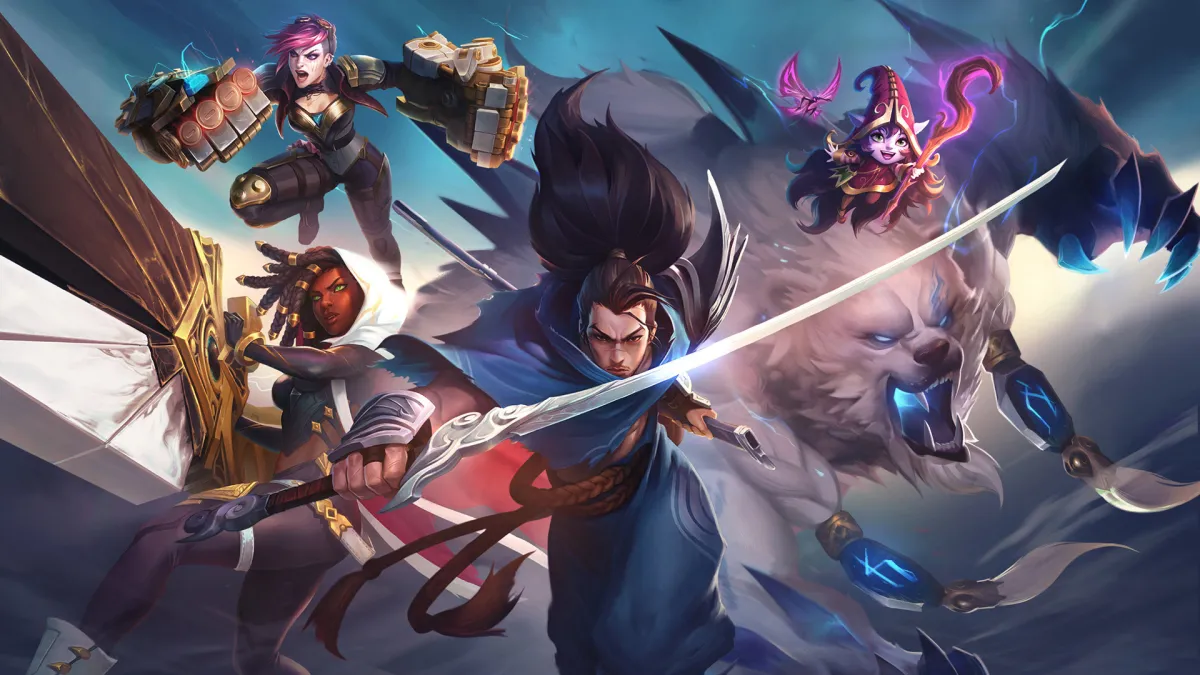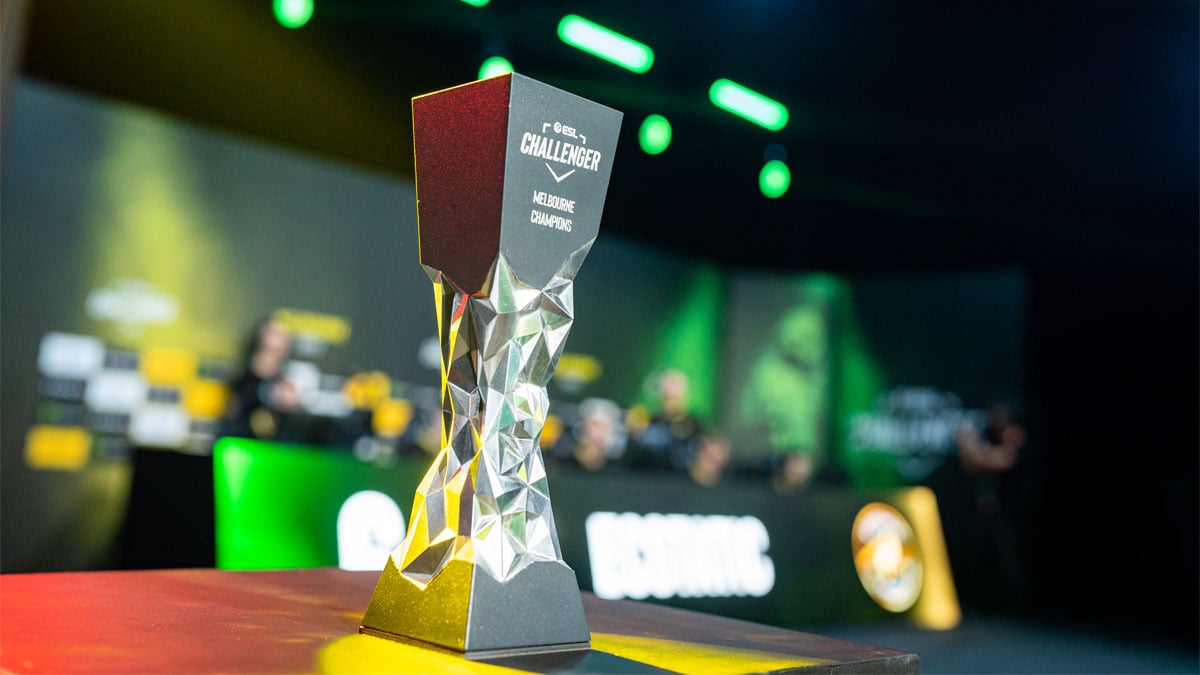Competitive League of Legends is male-dominated. Some things are opinions. This is a fact. From the casters and players to journalists and coaches, men congregate on every step of the industry’s ladder. There are various reasons, and various proposed solutions to this – some more controversial than others – but one of the most commonplace attempts to rectify the issue is the all-female tournament. Amateur celebrations of just-for-fun teams with RP prizes and professional women competing for hard cash can be seen regularly. However, this concept isn’t one that’s universally popular. This system of gender segregation has factors and effects that stem from and to not only the competitive industry, but the casual community. Presented here is the case for (and against) all-female tournaments.

For there to be a case for all-female tournaments, there has to be a case against mixed tournaments. Resources are limited. There is not endless money within the industry, and for women-only tournaments to be justified, there needs to be logical backing. Regardless of the debate behind its causes, there is a talent drought when it comes to female competitors. Gender-exclusive tournaments provide a valuable chance for women to gain competitive experience while showing that competitive play is an opportunity, despite your chromosomes. Female role models aren’t always there to provide a template or to play the heroine. They’re there to show it’s possible. Not every girl wants to be the next Sjokz. Some girls might want to be the next Deficio, the next MonteCristo… or the next Quickshot, but the presence of a diverse cast makes dreams seem more accessible. The same is true for female players. Young girls aren’t fickle enough to only be able to see females as role models, but an all-male landscape is discouraging at the very least.
What creates difficulties for mixed teams? The talent drought previously mentioned is the most basic factor – teams want to win. To win, they want the best possible player in each role, with the best team dynamic. The lack of talent at high elo contributes, but we have our fair share of Remilias. So why aren’t teams dotted with female talent? The initial problem is the accommodation and communication within teams currently. The air in gaming houses is thick with testosterone. Sexual tension, presuming that the majority of players are heterosexual, is fairly low. Communication between young male adults playing is easy – gaming communities have been this way for years. Drop a woman into the mix and the balance shifts. Being the only female in a house full of male gamers sounds like a terrible Big Brother parody or an awful low-budget anime. The novelty disrupts the flow. A hurdle is created.
This can create a toxic environment where forging a career becomes increasingly difficult. When the belief of the community is that women are, on the whole, less talented than men when it comes to the game, where does that leave the only female player on a team? Heather ‘SapphiRe’ Mumm, a CS:GO player, in a panel on female eSports participation at GDC earlier this year, mentioned that fans would put excessive blame on her for losses, and let her fade into the background when it came to victory. Stereotypes of women getting ‘boosted’ or ‘carried’ mean that the only woman in a team is liable to this type of attitude. Similarly, while the League of Legends community could be brutal to almost anyone, it tends to waver between blind hatred and creepy objectification when it comes to female personalities. Experts in their respective fields face a wave of harassment. If we truly want to expand participation in eSports, the goal is to minimise the barriers a budding gamer has to leap to prove themselves.
All-female tournaments do combat a number of these issues. They’re a relatively easy and quick way to get a large amount of women in a competitive environment, and the elimination of the singled-out female can reduce, if only marginally, the amount of harassment that they will receive. They avoid the issues of mixed gaming houses and the ‘token’ female. Not only this, but they present potential economic benefits. Adding a variety to eSports broadcasting offers an opportunity to expand the target market – creating interest through diversity. The advertising opportunities through these tournaments, which present an alternative to the traditional, offer economic rewards which eventually lead back into the growth of the female scene.
The case for all-female tournaments is optimistic. It relies on an audience. It relies on an abundance of players – which previous tournaments have had no problem sourcing. The potential benefits are vast but there are drawbacks to every idea, and this is no different.

There is no proven scientific basis for there to be a rift in talent between the genders. Despite angry links to studies on reaction times and strategic thought in forum discussions, it seems a general consensus that the gap is down to culture and practice, as opposed to raw genetics. This is in direct conflict with traditional sports, where there is a clear difference in physical build. The pitchfork-wielding mob of ‘eSports must strive to join traditional sports’ grows day by day. If there is no scientific basis for a difference in talent, are gender-exclusive tournaments are just an elaborate method of special treatment? There is the argument that allowing women to fame, victory and money whilst remaining the world’s best from the playing field just confines women to never be able to compete in regular tournaments. Without being forced to compete at the highest level, our ingénues will become satisfied with mediocrity. Perhaps, this is true.
Furthermore, there’s only one thing worse than no women in eSports. That’s a production nightmare. A shabby, cheap tournament with amateur casters making sexist comments on microphones from 1968, mumbling hurriedly as female teams shuffle into their custom game, rife with connection issues and technical difficulties. The Paris Games Week women-only tournament suffered from the production quality of a bad home video during a great deal of the group games, and turned what could have been a valuable opening for discussion into a joke. In other eSports, a Hearthstone Women’s Invitational earlier this year made headlines for all the wrong reasons. Draped in lurid purple curtains, the set presented its competitors in pretty dresses, on stools that made a spinal injury look like the most likely ending to the event. If we’re going to create women-only tournaments, we owe it to the players to give them a decent quality of production throughout, with the respect they deserve. Without it, with tournaments that no-one wants to compete in, eliciting chuckles from a foaming-at-the-mouth Twitch chat, the whole objective is lost. Female players deserve more.
It’s clear that this debate isn’t simple – there will always be varying viewpoints. To make any kind of progress, compromise must be made, but choosing what we sacrifice and what we pool our resources into is the difficult part. The bright side is that eSports is a flexible, evolving industry. The decisions we make now can change, and we can revise our outlook several times. What is the harm, then, in having female tournaments now, to dip into a new demographic and attempt expansion? If, or when, it leads to the development of talent, we can tweak the landscape to reflect that. There is only one conclusion that I can draw that is definitive, and that’s that if we commit to improving prospects for the female talent pool, we must commit to giving the players the respect and quality their work deserves. Only then can we endeavour to inspire a new wave of excellence.




